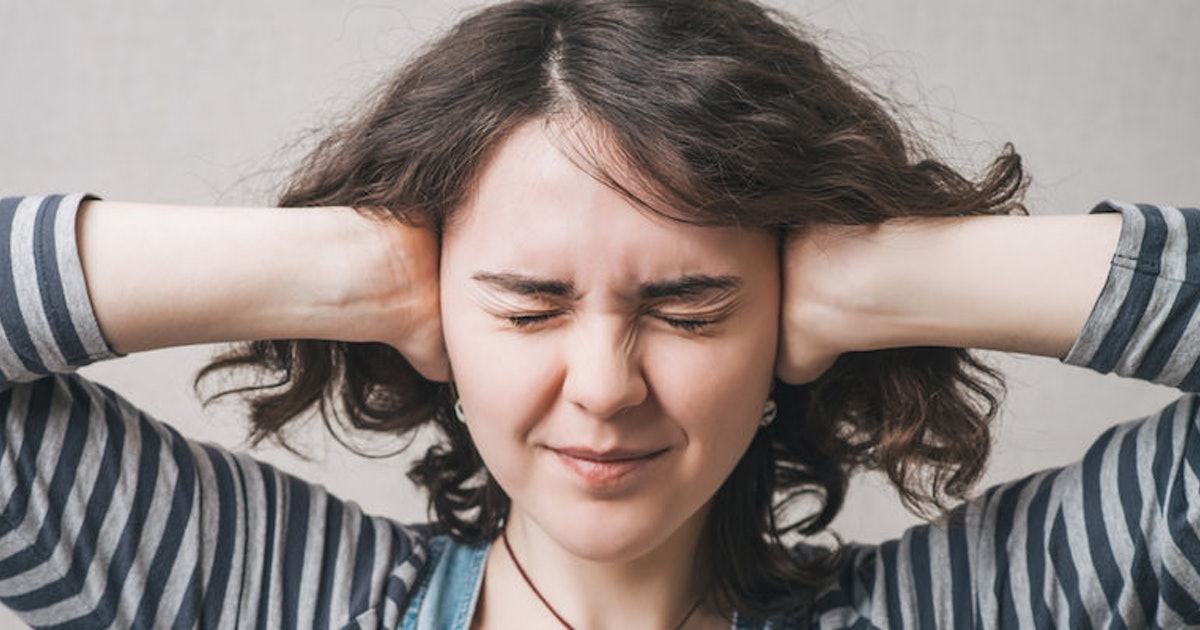Could You Be Suffering From Tinnitus? How To Easily Spot This Common Condition Affecting Millions Of Americans
Tinnitus is a condition in which affected individuals hear a ringing or buzzing sensation in the ears. It is very common in the United States and affects one in every five individuals. It is often associated with hearing loss, though there has been no direct link to tinnitus causing hearing loss or hearing loss causing tinnitus. It is mainly seen as an annoyance that comes and goes, but in extreme cases, it can cause difficulty concentrating and sleeping. Although it can be annoying, tinnitus is usually not a sign of a more severe health issue.
Get to know the facts surrounding tinnitus, from symptoms to treatment, now.
The Symptoms Of Tinnitus

The main symptom of tinnitus is the annoying sound of ringing, buzzing, clicking, or hissing that may come intermittently or continuously. The sound may vary in pitch from patient to patient (even from day to day in some instances) and may be present in one or both ears. In some patients, the sound can be so loud that they have a difficult time concentrating. To avoid the annoyance of tinnitus, doctors often recommend patients use ear ringing tablets, paired with a tinnitus therapy system, for best results.
Most cases of tinnitus can only be heard by the patient dealing with the condition. However, there is another type of tinnitus called objective tinnitus, where a doctor can hear the sound when they put a stethoscope in their patient’s ear. Objective tinnitus is rare and may be caused by muscle contractions, a blood vessel problem, or a middle ear bone condition such as abnormal bone growth.
Keep reading to find out the risk factors of tinnitus.
Risk Factors And Complications Of Tinnitus

Other factors that can increase a patient’s risk of getting tinnitus begin with age. As a patient ages, they will naturally begin to lose some of the functionality of the nerve fibers within their ears. Aside from advanced age, other risk factors for tinnitus include smoking, prolonged exposure to loud noise, and cardiovascular complications that affect blood flow. A simple way to prevent tinnitus is to use High Fidelity Earplugs for protection against loud noises. Some of the complications a patient may have to endure if they have tinnitus include fatigue, stress, depression, anxiety, irritability, as well as issues with their memory, sleeping, and concentrating.
Read about what causes tinnitus next.
What Are The Causes Of Tinnitus?

Many health conditions can cause tinnitus or make it worse. Many patients develop tinnitus due to their age as they begin to lose some of their hearing. However, there are many other common causes of tinnitus, such as prolonged exposure to loud noise, too much earwax buildup, and changes to the bones in the ear. Some less common causes of tinnitus include blood vessel disorders such as high blood pressure, inner ear cell damage, tumors, head and neck injuries, and some medications like antibiotics, water pills, as well as cancer and quinine medications.
Keep reading to learn about diagnosing tinnitus.
Diagnosing Tinnitus

Tinnitus can be very difficult to diagnose; sometimes the cause is never found. The doctor will examine the patient’s ears, head, and neck for possible causes. Some tests for tinnitus include a hearing exam in a soundproof room; checking the movement of eyes, jaw, neck, arms, and legs; and imaging tests such as CT or MRI scans.
Explaining the sounds heard may help the doctor discover the underlying cause. For instance, clicking sounds can indicate muscle contractions, humming is mainly vascular, a heartbeat sound is usually blood vessel problems, and high-pitched ringing can mean hearing loss due to exposure to loud noise.
Continue reading to find out ways to prevent and treat tinnitus.
Treating Tinnitus

The treatments for tinnitus depend on the underlying medical condition or cause. For instance, if excessive earwax buildup causes tinnitus, a doctor may clean it out by suctioning the patient's ear or they may flush out the wax with warm water. For at-home treatments, patients can useherbal oil to remove earwax. However, some cases of tinnitus cannot be reduced or eliminated.
Cases can last for days or weeks, coming at spontaneous intervals, or it may be continuous. Some other ways to treat tinnitus include the use of anti-anxiety and antidepressant medications, hearing aids, cochlear implants, tinnitus retraining therapy, and cognitive therapy. Each case of tinnitus varies and so do the best methods of treatment.
Next, learn about some ways to prevent tinnitus.
Prevention And Home Remedies

Preventing tinnitus has proven to be difficult for individuals who live or work in loud environments, since avoiding the noise is not an option. However, in this case, the best method of prevention remains protecting hearing, such as through appropriate headphone and similar equipment. Other means of prevention include avoiding irritants like caffeine, alcohol and nicotine, managing stress, and finding ways to mask the noise of tinnitus by playing light music, static, or turning on a fan. As for home remedies, many have eased the symptoms of tinnitus such as ginkgo biloba, zinc, magnesium, and B vitamins. In some cases, patients have been able to relieve their tinnitus with acupuncture, magnets, or hypnosis.